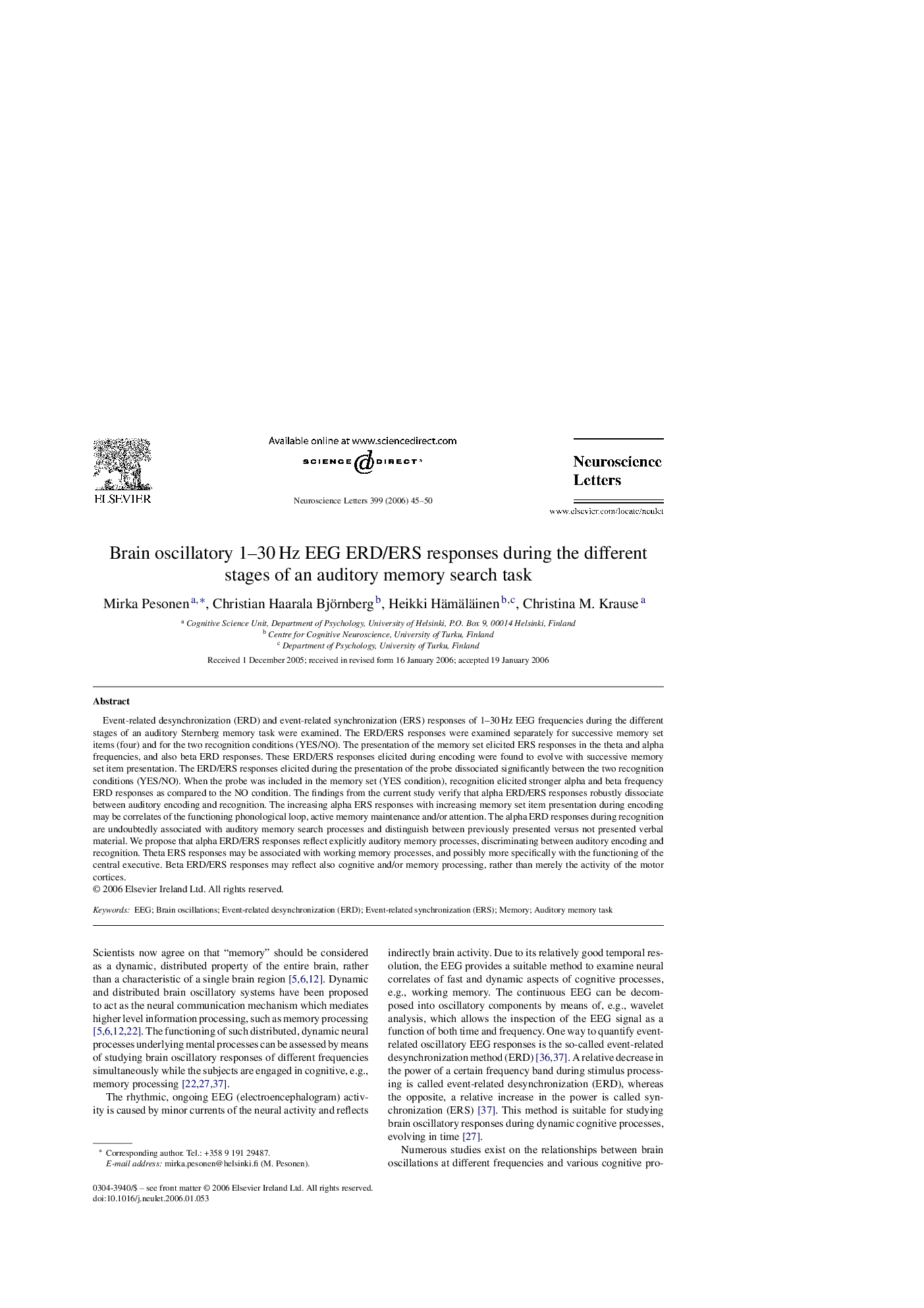| Article ID | Journal | Published Year | Pages | File Type |
|---|---|---|---|---|
| 4350695 | Neuroscience Letters | 2006 | 6 Pages |
Event-related desynchronization (ERD) and event-related synchronization (ERS) responses of 1–30 Hz EEG frequencies during the different stages of an auditory Sternberg memory task were examined. The ERD/ERS responses were examined separately for successive memory set items (four) and for the two recognition conditions (YES/NO). The presentation of the memory set elicited ERS responses in the theta and alpha frequencies, and also beta ERD responses. These ERD/ERS responses elicited during encoding were found to evolve with successive memory set item presentation. The ERD/ERS responses elicited during the presentation of the probe dissociated significantly between the two recognition conditions (YES/NO). When the probe was included in the memory set (YES condition), recognition elicited stronger alpha and beta frequency ERD responses as compared to the NO condition. The findings from the current study verify that alpha ERD/ERS responses robustly dissociate between auditory encoding and recognition. The increasing alpha ERS responses with increasing memory set item presentation during encoding may be correlates of the functioning phonological loop, active memory maintenance and/or attention. The alpha ERD responses during recognition are undoubtedly associated with auditory memory search processes and distinguish between previously presented versus not presented verbal material. We propose that alpha ERD/ERS responses reflect explicitly auditory memory processes, discriminating between auditory encoding and recognition. Theta ERS responses may be associated with working memory processes, and possibly more specifically with the functioning of the central executive. Beta ERD/ERS responses may reflect also cognitive and/or memory processing, rather than merely the activity of the motor cortices.
